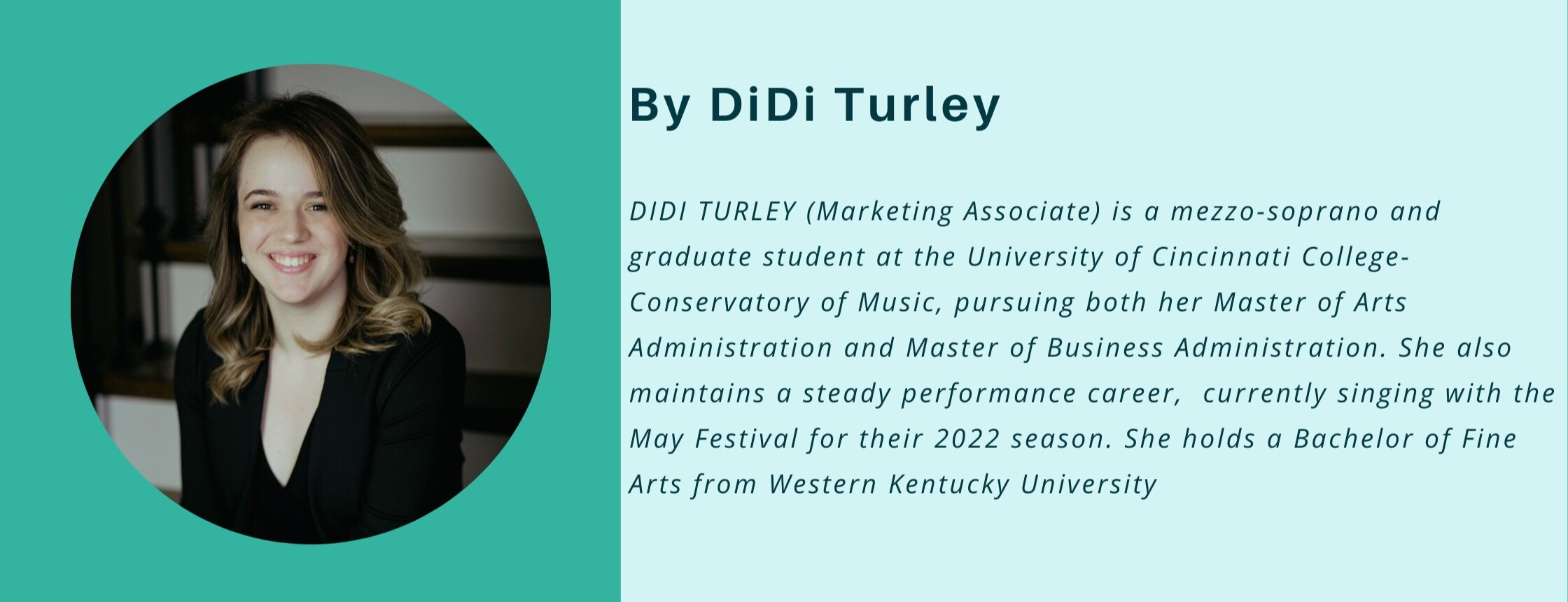Resources for Accessibility in Opera
Last month, Opera NexGen sat down with Ju Hyeon Han, Stephanie Ko, and Hailey McAvoy to address the existing ableism in opera and gain insight into how the disabled community of both opera professionals and audiences can be actively included in the industry. You can watch it here! We’ve decided to compile the resources provided by our panelist Stephanie Ko into a master list for anyone searching for information on how to create a more accessible space for artists and audience members.
Resources on Disability Language
Content warning: Ableist language, used for educational purposes
This page covers everything from slurs to potentially problematic or disputed language, and provides alternative word choices for each. It’s a great resource for removing linguistic ableism from your day-to-day life.
Disability Language Style Guide
This is an alphabetized style guide from the National Center on Disability and Journalism. It offers appropriate language choices for writing about people with disabilities in a number of writing styles. It’s also available in Spanish, Italian, and Romanian.
Person-First and Identity-First Language
For more information on Identity-first versus Person-first language, check out these different perspectives:
Identity-first vs. person-first language is an important distinction (Tara Haelle, Association of Health Care Journalists)
I am Disabled: On Identity-First Versus People-First Language (Cara Liebowitz, The Body is Not An Apology)
Identity-first language (Lydia Brown, Autistic Self Advocacy Network)
Disability Representation in Opera
Database of Musical Representations of Disability
This is a database of musical works that either provide representation of a disability or are written by a composer with a disability. Note that not all musical genres may be visible by default; they can be revealed/hidden by clicking the arrow next to the column heading "GENRE", which reveals a dropdown menu of settings
Opera & Disability is a blog about disability representation in opera written by musicologist Dr. Charlotte Armstrong
“Opera and Disability is a research blog dedicated to exploring the representation of disability in opera on stages (and screens!) past and present. It brings research in musicology, performance studies, and disability studies to a general audience, featuring articles and guest posts on a range of historical and contemporary productions, important issues in the industry, and more.”
Video Resource:
Opera Mariposa panel discussion, December 2020 — This video has a few sections addressing disability representation onstage, including a segment about operatic "mad scenes" starting at 59:34 (direct link to that section here)
Improving Accessibility
This is a powerpoint created by Amanda Leduc covering the five categories of accessibility for events mentioned by Stephanie Ko in the webinar, starting from slide 17; This powerpoint also covers Amanda's perspective on inclusive language.
Artist Producer Resource - Accessibility
This article by Artist Producer Resource covers creation of accessibility statements and improving accessibility for audiences, performances, artists, and content creation.
ReelAccess Accessibility Guide
This guide is a fairly comprehensive handbook on arts festival accessibility from 2019, created by ReelAbilities Film Festival in Toronto. Information has been compiled from local and international arts festivals.
Artists & Advocates
A note from Stephanie Ko: “The other thing I always recommend is that people follow more other disabled artists and advocates on social media; it's a great way to keep developing literacy around accessibility and other issues affecting the disability community (while also supporting disabled creators). Here's a starting point:
Here are a few great Deaf, disabled and neurodivergent artists and advocates to check out on social media.”
It’s our hope that these resources will help you to create a more accessible creative space for employees, artists, audience members, and those in your day-to-day life! Again, thank you to Stephanie Ko for providing these resources and to our incredible panelists for taking the time to speak with us on accessibility in opera.


